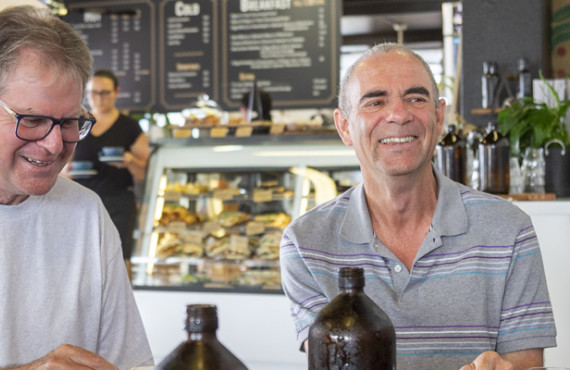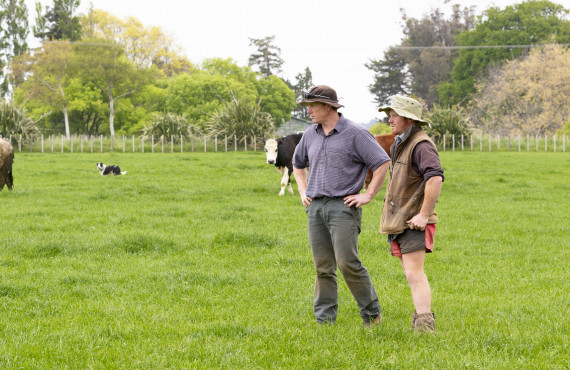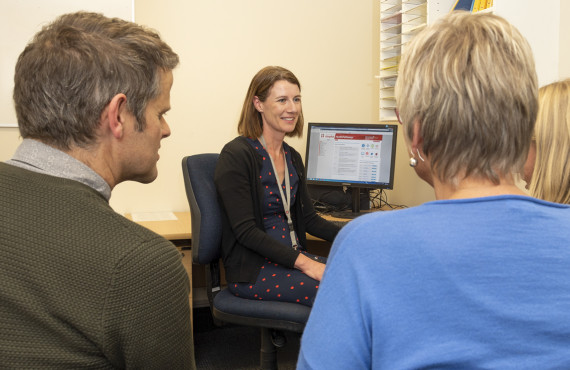There are 4,000 prostate cancer cases every year, and it is the most common cancer for men in Aotearoa New Zealand.
What is prostate cancer?
Prostate cancer is cancer that starts in the prostate, the small gland that sits below the bladder and is part of the male reproductive system.
Like the rest of your body, the prostate is made of tiny 'building blocks' called cells.
Prostate cancer is the abnormal growth of these cells into a lump or tumour.
Cancer is a disease of the body's cells. It starts in our genes. Our bodies are constantly making new cells, a process controlled by certain genes. Cancers are caused by damage to these genes. As the damaged cells replicate a lump or tumour is formed.
Tumours can be:
- Benign - not cancerous. These do not spread to other parts of the body.
- Malignant - cancerous
The prostate makes most of the fluid that mixes with sperm to make semen and produces a protein called prostate-specific antigen (PSA).
The prostate is a small gland about the size of a ping pong ball.
It sits just below the bladder and surrounds the upper part of the urethra – the tube that carries urine from the bladder and semen from the testicles to the outside of the body through the penis.
The prostate produces most of the fluid that mixes with sperm to make semen.
During sex the muscles of the prostate help force prostate fluid and sperm into the urethra via ejaculation.
The male sex hormone, testosterone, made in the testicles, controls how the prostate works.
The prostate also produces a protein called prostate-specific antigen (PSA). This helps to make semen watery.
- He repe iti noa iho te repe tātea, āhua rite ki te rahi o te poikōpiko, ka noho ki raro tata i te tōngāmimi. Ka whakanao te repe tātea i te nuinga o te wai tinana ka whakaranu me te tātea ki te mahi i te waitātea, me tōna whakanao i tētahi pūmua e kīia ana ko te prostate-specific antigen (PSA).
- I te nuinga o te wā, kāore he tohumate mō te matepukupuku repe ure puta moata. Tērā pea, ka whakamahia he unuhanga ki tō repe tātea Inā kua piki te taumata o tō PSA, Ko te unuhanga te huarahi matua mō te whakatau i te matepukupuku repe ure.
- Ka puta te matepukupuku repe tātea, i te nuinga o ngā wā, ki ngā tāne pakeke ake i te 50 tau, ā, koinei te matepukupuku kiteatia nuitia ai ki roto i ngā tāne o Aotearoa.
Prostate cancer symptoms
The symptoms of prostate cancer are often hard to pick out and confused with other non-cancerous conditions.
The symptoms of prostate cancer may include:
- difficulty peeing
- peeing more often, especially at night
- pain when peeing
- blood in your pee or semen
Often there are no signs of early-stage prostate cancer.
Having these symptoms does not mean you have prostate cancer, but it is important to have any changes checked by your doctor.
Tips for talking to your doctor
- make a list of what you are feeling and how often it happens, including as much detail as possible
- think about your family/whānau history of cancer and tell your doctor
- go back to your doctor if you don't feel better, even if tests show you don't have a problem - you can ask for a second opinion if you want one
- take a family/whānau member or friend with you to the appointment for support
What causes prostate cancer?
Like many types of cancer, we don’t always know why people get prostate cancer, but some things increase your risk.
These risk factors include:
- getting older
- if your father or brother has been diagnosed with prostate cancer

If you have prostate symptoms or concerns such as problems peeing or blood in your pee or semen, see…

There are a number of tests used to diagnose prostate cancer.

We've put together a list of questions you may wish to ask your treatment team.

We are here to help and support you and your whānau through cancer diagnosis, treatment and recovery…
We know that going through cancer is tough and can raise many questions. You are not alone.
We have health professionals to answer your questions and provide the support you need.
Get in touch
